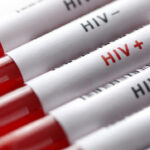All four antibody-based test kits evaluated by the Medical Laboratory Science Council of Nigeria failed validation tests, the federal health ministry said on Thursday.
Antibody-based test kits use serum samples to test for the presence of antibodies, the compounds released by the human body in the presence of disease to ramp up the immune system to fight an invading microorganism.
READ: Rapid test kits could be as dangerous as the virus
Antibody based rely on the presence of antibodies to determine the presence of a disease but are not always accurate.
the presence of antibodies in the wake of an infection leads antibody-based kits to read positive for a disease even when the immune system may have neutralised the pathogen.
READ: Kogi says it bought 5,000 test kits for Covid-19
On the other hand, not everyone produces enough antibodies to fight a disease or in sufficient amounts to be detected, hence an antibody-based kit will read negative even when the pathogen is present.
Experts recommend using testing that looks for the presence of the actual microorganism in the body.
READ: TB test repurposed for Covid-19, and the reason behind the #lockdown
Health minister Osagie Ehanire, announcing the result of validation tests, said no antigen test kits have been evaluated yet.
That means results from them are not tenable for diagnosis, because they are deficient in sensitivity and specificity and are alike to give false results and mislead people.
He said, “The NCDC certified laboratories in Nigeria use WHO recognized PCR testing methods which give reliable result. Though expensive, this option is right and we have 30 laboratories deployed, with the aim of establishing at least one laboratory in every state.”
PCR—also known as the polymerase chain reaction—scans samples for pathogens and compares their molecular structures to already documented structures of microorganisms on a database.

 Join Daily Trust WhatsApp Community For Quick Access To News and Happenings Around You.
Join Daily Trust WhatsApp Community For Quick Access To News and Happenings Around You.